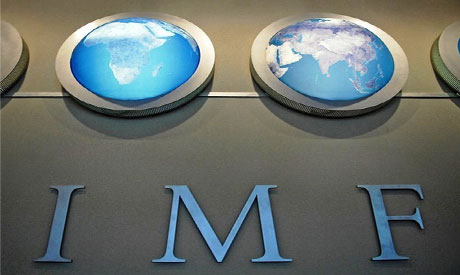
International Monetary Fund, Photo: (Reuters)
Egypt, on Sunday, finalised an agreement with the International Monetary Fund (IMF) for a $3 billion loan. The stand-by-agreement is expected to be submitted to the IMF executive board for approval in July. The reimbursement should start after three years for five years with an interest rate of 1.5 per cent.
“The low interest rate is very important, it helps contain the debt increase. If we compare it with a 7 per cent interest rate when borrowing from the open market, we can see how beneficial this loan is,” said Samir Radwan, Egypt’s minister of finance.
IMF interference in the country has caused some economists and activists to worry about what conditions the fund will impose, a point that didn’t escape the minister. “The history is that the IMF imposes conditions on the borrower countries but, in this case, there are no conditions. It is a response to Egypt’s demands and it aims to help Egypt reforming its economy by reducing the deficit in the coming years and increasing tax revenue,” explained Radwan.
During a press conference held to announce news of the deal, Radwan and Ratna Sahay, deputy director of the IMF’s Middle East and Central Asia department, tried to allay fears over the loan.
“The agreement doesn’t include any conditions concerning the raising of any prices but is helping our plan to increase spending on health, education, salaries and housing to which the budget put aside LE10 billion,” said Radwan.
“There was technical assistance and discussion but the decision was taken independently. A lower rate of interest is very important to prevent the debt burden from soaring,” said Sahay, adding that the revolution have placed on the government many expectations and demands. “We can see one of the biggest priorities of the government and the people is to increase social justice and we respect that priority.”
Responding to a question from Ahram Online on how the relation between the fund and Egypt could change should a new elected government adopt less liberal policies, Sahay said the IMF doesn’t have a ready formula. “We will see what they propose and discuss it with them and as long as it helps Egypt achieving growth, social justice and more economic efficiency, we are there,” she said.
Egypt's 10 per cent deficit draft budget for the fiscal year starting 1 July was welcomed by the IMF a few days earlier, saying it will aid the economy. The budget is the country's first spending plan since the ouster of former president Hosni Mubarak.
"We share the draft budget's overarching goal aimed at promoting social justice," Sahay said at the time in a statement published by the IMF. "The measures go in the right direction of supporting economic recovery, generating jobs and assisting low income households, while maintaining macroeconomic stability.”
Such endorsement, however, is not necessarily an indication of where the IMF’s priorities lie with a view to Egypt. "Of course, the fund will welcome the budget as long as it goes in the open market direction but their attitude can change if our policies change," believes the economist Ibrahim El-Essawi.
The IMF has come under renewed attack for its apparent eagerness to lend to Egypt. In the British daily The Independent, columnist Johann Hari last week accused the fund of impoverishing poor countries and working mainly for the benefit of the financial system and major economies. “To understand this story, you have to reel back to the birth of the IMF,” explained.
“In 1944, the countries that were poised to win the Second World War gathered in a hotel in rural New Hampshire to divvy up the spoils. With a few honourable exceptions, like the great British economist John Maynard Keynes, the negotiators were determined to do one thing. They wanted to build a global financial system that ensured the money and resources of the planet were forever hoovered towards them.
“They set up a series of institutions designed for that purpose – and so the IMF was delivered into the world.”
Short link: